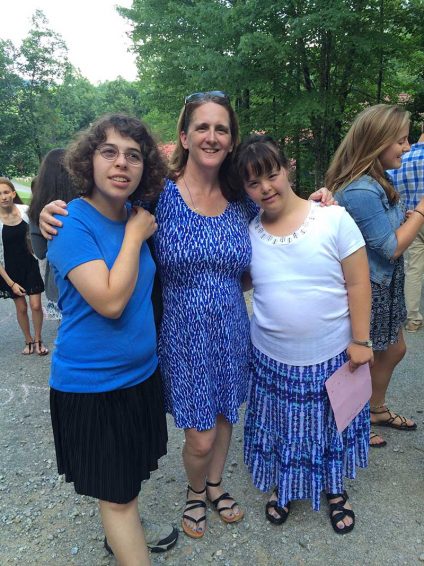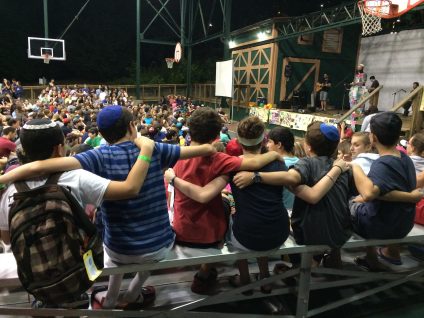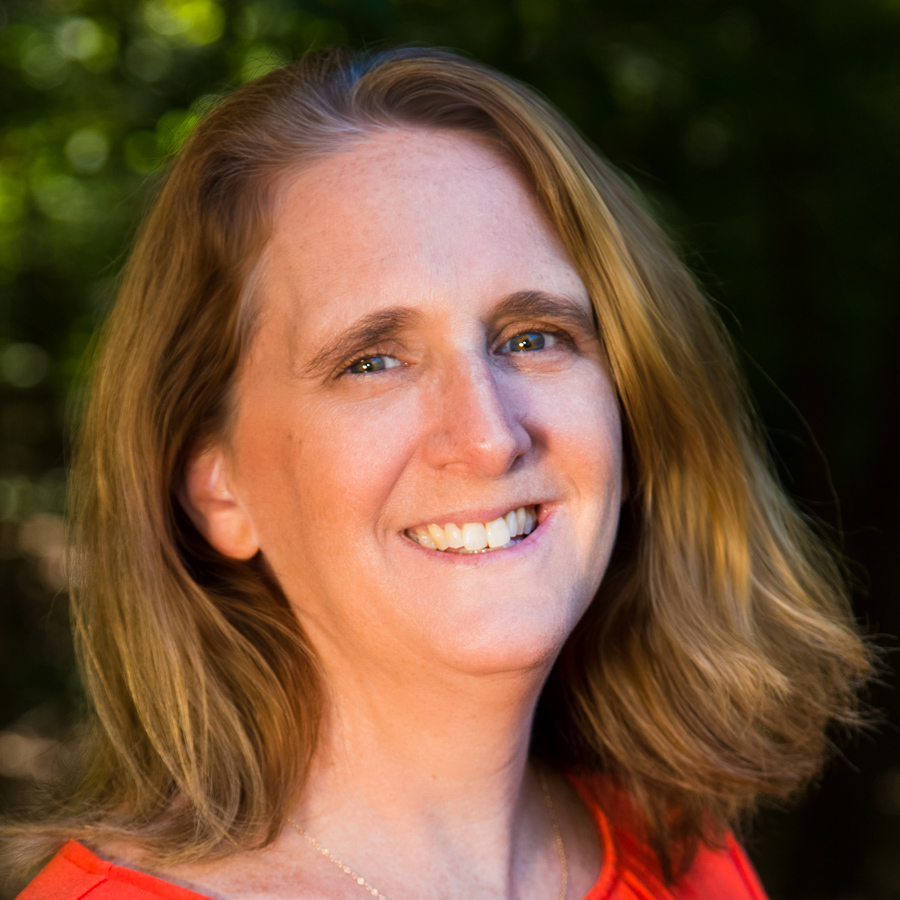
By Dr. Audra Kaplan, Director of Camp Ramah Darom’s Tikvah Program
A question I always ask parents is “what is your goal for your child at camp?” I want to hear from them what they want from the Camp experience. Frequent goals are to make new friends, try a new activity and develop independent living skills. One goal that rang true for so many this past summer was, “I want my child to be part of the Jewish community of Ramah Darom.”
As a professional who has worked in the field for a while, I knew how to approach the first goals and how to assess if we had met them. In any camp environment, you cannot get through the day without trying something new and for many campers diagnosed with a disability, just being away from home and at overnight camp would be a new experience. I knew how to work with the specialists at camp to modify an activity to support a camper’s challenges. I knew how to facilitate social opportunities that would offer chances for friendships. But asking their child to be a part of a Jewish community, how would that be measured?
I decided to stop and ask more questions from the parents. What would it look like for your child to be a part of the Jewish community of Camp Ramah Darom? For one mom, it meant that her daughter would be a part of the unique Havdallah and Rikud (dance) of Darom. A night when all of the campers join together and share the prayers that mark the end of Shabbat and the start of the new week, followed by song after song of dancing together in the amphitheater. For this mom, whose other children had attended and worked at camp, she wanted her daughter diagnosed with Down Syndrome to have a shared experience. For another dad, living Jewishly meant that his son diagnosed with Autism Spectrum Disorder would have a community to learn prayers and feel the same spark that he had when he attended Jewish camp growing up. Another dad of a teenage girl wanted his daughter to learn about Jewish traditions, as she was not able to attend a religious school in their home community.
The campers supported by Tikvah have a varying degree of Jewish knowledge and exposure. In planning this aspect of our Camp curriculum, I was aware that tefillah (prayer service) is mostly in Hebrew, so I decided to have the Tikvah supported campers initially have a separate learning service. We chose the core prayers that we wanted to teach this summer (Mode Ani, Ma Tovo, Ma Rabu, Or Chadash, Sh’ma, Amidah, Osah Shalom, Alenu and the prayers for Torah honor). These prayers were chosen based on their religious importance and meaning, and also because they are ones in which Ramah Darom has special melodies. Over the course of the four weeks, the campers learned became familiar and then made the prayers their own. Starting with week one, we attended the aidah (age group) tefillah with increasing frequency. The Tikvah supported campers felt confident to lead some prayers in the mainstream service. By gradually introducing the campers to the prayers and the expectations of morning prayer, they felt not only more comfortable but also felt ownership and belonging, that they would not have had if they had been placed in this service without the pre-teaching.

Havdallah and the dance that comes after are signature parts of Ramah Darom experience. In order for them to feel a part of the Ramah Darom community, while not feeling overwhelmed by the experience, a lot of pre-thought went into how to best approach Havdallah. The supports we put into place included pre-teaching the dance in a smaller group prior to Saturday night; repetition of the dances; slowly adding other campers to the dance lessons; beginning pre-teaching what would happen during Havdallah earlier in the week, and allowing the campers a choice of how long they wanted to stay at the dance party. We were able to differentiate each camper’s experience so that Havdallah and the Rikud would be fun and meaningful to them. For campers, with a sibling or relative at camp, being a part of Havdallah was not only special for them, but for their sibling who could now have this shared experience.
Other aspects of Jewish immersion included Chug B’Ivrit (Activities immersed with Hebrew language education), Yahdut, and a daily group called Z’man Kehiah where we learned about expected and unexpected aspects of living in a community.
The measure of our success was feedback received from parents, words express so beautifully:
“I can’t begin to thank you for enabling my daughter to have the time of her life! She engaged in so many new and exciting activities that she otherwise would not have been afforded the opportunity to do; from archery and volleyball to swimming in the lake and tubing not to mention the incredible Jewish experience that has now enriched the lives of 3 of my 4 children. It was a life changing experience for her. My daughter has not stopped talking about camp since she got home on Monday. Her most common question is, will she be going back to Camp Ramah Darom?”
Another camper’s grandmother was teary-eyed at camper pick up when I shared the story of her grandchild being called to the Torah during Nivonim (rising 10th graders) Shabbat. She had spent time each day preparing and learning the brachot (blessing). It was heartwarming when the whole aidah wished them a yosher koach (good job) following their honors. Her grandmother shared that at home, she showed little interest in Jewish education, and was grateful for the fact that she would choose to participate and willingly learn new prayers.
I knew that the entire Camp would welcome us, but I had not anticipated the impact it would have on the other campers. When we were not at the larger service, we were missed. Campers and staff would inquire of me, why weren’t you there? They wanted us to be a full part of the aidah, they wanted us to join in prayer together. By week four of Camp, I am happy to report we met this goal, we attended Shabbat and weekday services together. Our campers now knew many of the prayers and some even chose to lead a prayer or two. They sat among the other campers and we knew that our job was done, at least for that moment.
And for me, each night as I say the Sh’ma with my own children I hope that my campers are saying it at home, as this was our nightly ritual. I hope that each night they think about the magic of Ramah Darom’s Jewish community and dream of returning to Camp next summer.
Dr. Audra Kaplan is the former and founding Director of Ramah Darom’s Tikvah Support Program.
The Henry and Annette Gibson Tikvah Support Program at Ramah Darom is supported by generous grants from The Ruderman Family Foundation, as well as many other sponsoring foundations and individual donors.
